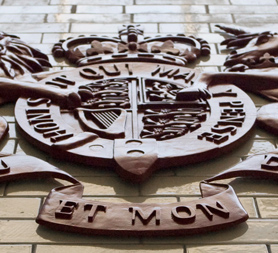Treasury answers child benefit questions
 Victoria Macdonald
Health and Social Care Editor
Victoria Macdonald
Health and Social Care Editor
The Treasury answers your questions on plans to scrap child benefit for higher rate taxpayers – telling Channel 4 News the more complicated points will be worked out during the legislation process.

It is fair to say that the announcement on the Monday (4 October) of the Conservative Party conference that the Coalition Government was planning to cut child benefit for higher rate taxpayers took many by surprise.
Many Cabinet members and senior ministers said later that it looked as if it had been drawn up in a hurry.
Certainly, there was irritation by some party members that it ended up dominating the headlines of what was their first conference since they took power.
Read more from Channel 4 News on child benefit
At the time, details were scant. Now, nearly three weeks later, questions are still being asked about its implementation and there are some who say the child benefit cut is “virtually unenforceable”.
Fines
The Treasury naturally disagrees with this and rejected the surprise in some quarters that higher rate taxpayers who do not declare whether their partners are receiving child benefit will be fined.
Treasury officials insist they had briefed on this at the time of the announcement on 4 October. But also add that it is no different from the process used to fine any taxpayer who lies on their returns. These are not new fines. Just the existing ones which apply now, a Treasury spokesman told Channel 4 News.
There remains, however, confusion about who will qualify for child benefit and what will happen if there are changes in circumstances. The Government plan is that those earning nothing, but with a partner earning more than the £43,875 threshold for higher-rate tax, will lose the benefit.
The anomaly is that if both partners earn below that threshold, potentially bringing the household income to more than £87,000, they will still receive the money.
Alan Johnson letter to George Osborne
But today, Labour’s Shadow Chancellor Alan Johnson wrote to the Chancellor George Osborne, demanding clarification to a number of points.
What would happen, he asked, in the following situations:
- Would a single mother lose her child benefit for her younger child if an older child who lives in the same home became a higher rate taxpayer?
- Would a single mother lose her child benefit if she moved into her sister’s home and her sister’s husband was a higher rate taxpayer?
- Would a single mother who moved back in with her parents lose her child benefit if one of the children’s grandparents was a higher rate taxpayer?
- If a grandmother, paying higher rate tax, moves in with her daughter and son-in-law late in her life, would that mean that the daughter would lose eligibility for child benefit? Would the grandmother be “fined” if her daughter continued to claim child benefit?
- If a single mother meets a new partner who is a higher rate taxpayer – how many nights would they need to spend together for her to be disqualified from child benefit? Would she have to keep a record of the number of nights she stayed with him? Would the answer vary if the nights were spent in her property or his?
“These are just a few examples of how complicated your proposal has become,” Mr Johnson said. “There are many similar scenarios.”
These are just a few examples of how complicated your child benefit proposal has become. Alan Johnson, Shadow Chancellor.
The Treasury responded today by saying that there would be a need to legislate for this and some of the points would be worked out during that process. In the meantime, they said, all the questions about sisters or grandmothers or brothers-in-law do not count.
“This is about the family which is defined as a couple in receipt of child benefit. They could be married, in a civil partnership, a mother and father, a mother and mother, a mother and stepfather,” the Treasury spokesman said.
Single mothers
We then asked what happens if a single mother meets a new partner who is a higher rate taxpayer? How many nights would they need to spend together for her to be disqualified from child benefit? Would she have to keep a record of the number of nights she stayed with him? Would the answer vary if the nights were spent in her property or his?
There will be a need to legislate for this and some of the points could be worked out during that process. Treasury spokesman.
The answer to that is, the rules are likely to follow those currently in place for those who receive family tax credit. Although the Treasury could not be specific about where that point starts.
We also asked: How much will it cost to enforce the child benefit changes?
This will, the Treasury said, come from within HMRC resources and they would have to calculate the cost of compliance. The Comprehensive Spending Review (CSR) document states that allowing for “the possibility that a small number of families will not be correctly identified”, savings for the first full year will be £90 million.